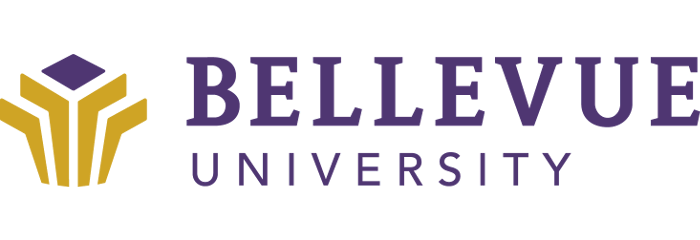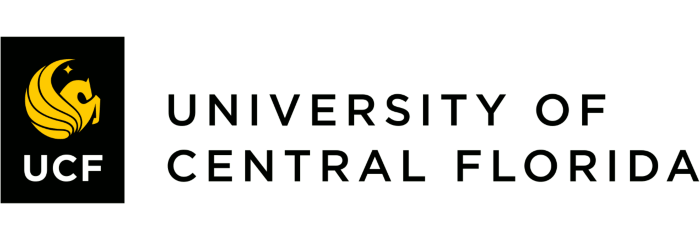2025 Best Online Law Schools
Our list of the best online law schools highlights accredited colleges enrolling the largest number of online students.
Key Takeaways:
- At #1, Arizona State University Online leads with 52,896 online learners.
- The University of Central Florida has a 92% first-year retention rate and a 75% graduation rate. (Both are in the top 10% nationally.)
- Wilmington University has the lowest student-faculty ratio of 12:1.
See our methodology for details. After our list of the best schools with an online law degree at the bachelor's level, we spoke with law professionals about how students can leverage online law programs to prepare for their careers.
List Of Accredited Online Law Schools
| School | Online Enrollment | Annual Tuition |
|---|---|---|
| Arizona State University, Online | $24,780 | |
| University of Maryland Global Campus | 44,794 | $14,970 |
| Liberty University | 39,168 | $11,700 |
| Purdue Global | 31,661 | $11,130 |
| UMass Global | 10,984 | $15,000 |
| Bellevue University | 10,478 | $13,470 |
| University of Central Florida | 10,076 | $18,481 |
| Pennsylvania State University - World Campus | 7,807 | $15,356 |
| South University Online | 7,642 | $14,250 |
| National University | 7,589 | $4,162 |
| University of Arizona | 7,535 | $15,750 |
| Wilmington University | 7,514 | $12,570 |
| University of Cincinnati | 4,238 | $13,172 |
| George Mason University | 3,840 | $34,860 |
| Regent University Online | 3,407 | $10,880 |
2025 Best Online Law Schools
- Online Enrollment: 52,896 enrolled
- Annual Tuition: $24,780
- Locations: Tempe (AZ) (and 4 others)
Why we like them: Ranked #1, ASU’s online enrollment of 52,896 places the school in the top 1% for online scale nationwide. ASU’s online bachelor’s in business – law uniquely blends a full business curriculum with specialized legal training. This law concentration gives students practical knowledge to navigate contracts, compliance, human resources, and policy within a business context.
- Online Enrollment: 44,794 enrolled
- Annual Tuition: $14,970
- Location: Adelphi (MD)
Why we like them: Ranked in second place, UMGC earns its place with 44,794 distance learners overall. Its online legal studies bachelor's program includes real practice, like mock client letters, case reports, and litigation-oriented analyses, which we believe go beyond survey-style assignments common elsewhere.
- Online Enrollment: 39,168 enrolled
- Annual Tuition: $11,700
- Location: Lynchburg (VA)
Why we like them: LU’s pre-law pathway provides undergraduate exposure to law school-style core subjects, like torts, property, jurisprudence, constitutional criminal procedure, legal research and writing, and advanced logic. In this way, it gives you a foundation in legal reasoning earlier than you typically would.
- Online Enrollment: 31,661 enrolled
- Annual Tuition: $11,130
- Location: Indianapolis (IN)
Why we like them: This BS curriculum is recognized by NALA as meeting coursework criteria to sit for the Certified Paralegal Exam, a targeted path that many programs do not explicitly align with. We also like that you gain opportunities for internships and access to the PG Law Society for networking and leadership opportunities.
- Online Enrollment: 10,984 enrolled
- Annual Tuition: $15,000
- Locations: Multiple Locations
Why we like them: UMass Global's legal studies degree gives you the ability to step out for a term without penalty. It also includes a Paralegal Profession concentration that explicitly prepares you for both the Paralegal Core Competencies and Certified Paralegal exams. You can also choose a Business Law concentration.
- Online Enrollment: 10,478 enrolled
- Annual Tuition: $13,470
- Location: Bellevue (NE)
Why we like them: BU’s accelerated online cohort lets you take one class at a time with a single upfront registration, so you move through the program with the same peers and graduate with a built-in network. In this legal studies degree, you benefit from the Kirkpatrick Signature Series that foregrounds American civic values.
- Online Enrollment: 10,076 enrolled
- Annual Tuition: $18,481
- Locations: Orlando (FL) (and 7 others)
Why we like them: UCF distinguishes its online BA/BS in Legal Studies with a full-time faculty exclusively from ABA-approved law schools, giving you consistent, practice-grounded instruction we seldom see at this scale. You can pursue one or two specializations, such as Public Law, Litigation, Criminal Law, or Transactional Law.
- Online Enrollment: 7,807 enrolled
- Annual Tuition: $15,356
- Location: University Park (PA)
Why we like them: PSU's law bachelor's degree has pre-law advising purpose-built for you as well as a level of co-curricular legal preparation we rarely see in peer online programs. We also like how you can customize your learning to include legal brief writing and the philosophy of law/legal ethics, rhetoric and law, judicial behavior, and quantitative/qualitative research, to name a few areas.
- Online Enrollment: 7,642 enrolled
- Annual Tuition: $14,250
- Locations: Multiple Locations
Why we like them: SUO's legal studies program has a tech-forward backbone, where you complete the course, Modern Law Office: Technology and Practice, and can add Advanced Technology for Paralegals, Cyberlaw, and Litigation Support Management.
- Online Enrollment: 7,589 enrolled
- Annual Tuition: $4,162
- Location: La Jolla (CA)
Why we like them: NU stands out with a true 3+3 pathway into NU’s JFK School of Law. Here, you would get pre-law practice, like a moot court with an appellate brief and formal arguments, a mock-trial capstone, and court observations. And throughout the program, you would also receive embedded LSAT prep.
- Online Enrollment: 7,535 enrolled
- Annual Tuition: $15,750
- Locations: Tucson (AZ) (and 1 other)
Why we like them: At UA, you access the nation’s first BA in Law, built through a cross-college partnership between the James E. Rogers College of Law and the School of Government and Public Policy, delivering JD-style pedagogy at the undergraduate level. You can also opt into a Legal Paraprofessional pathway if you want. This would prepare you to sit for Arizona’s LP licensure exam.
- Online Enrollment: 7,514 enrolled
- Annual Tuition: $12,570
- Location: New Castle (DE)
Why we like them: WilmU's law degree has an ABA-aligned legal specialty structure that's completed via face-to-face or synchronous instruction. You can leverage express-admission pathways to the WilmU School of Law or Widener University Delaware Law School by meeting defined GPA and LSAT thresholds, with scholarship consideration.
- Online Enrollment: 4,238 enrolled
- Annual Tuition: $13,172
- Locations: Cincinnati (OH) (and 1 other)
Why we like them: UC's online law program has ABA approval with fully online courses covering legal specialty taken via live, synchronous sessions. We appreciate that the program's description emphasizes high job placement after graduation.
- Online Enrollment: 3,840 enrolled
- Annual Tuition: $34,860
- Location: Fairfax (VA)
Why we like them: GMU's online program has a tight alignment to the justice and security ecosystem around Washington, D.C., pairing abundant, credit-bearing internships across law enforcement, courts, corrections, intelligence, and nonprofits with direct access to regional organizations you want on your resume.
- Online Enrollment: 3,407 enrolled
- Annual Tuition: $10,880
- Location: Virginia Beach (VA)
Why we like them: Regent’s online B.A. in Law & National Security blends legal studies with cybersecurity and national security content. We find the explicit coverage of DHS statutory authority, hazard mitigation, identity management, disaster recovery, and even artificial intelligence very comprehensive for an undergraduate law-themed curriculum.
Expert Advice on Online Law Degrees: AI, Climate, and Digital Health Will Define the Next Decade of Legal Careers

Owner and Attorney, Nick Heimlich Law
"The following decade of legal careers will be characterized by three areas.
First in line is AI and data privacy law. Mishandling of personal data is now costing companies millions of dollars. The California Consumer Privacy Act received more than 2,000 complaints in the first year alone.
The litigation around climate is booming in the country. Cities are suing oil companies over the damage of sea-level rise. The number of these suits rose to more than 1,400 suits around the world in a mere five years.
Digital health law has enormous potential. During the pandemic, telemedicine increased by 3,800 percent. Lawyers familiar with both the HIPAA and new tech regulations are sorely needed in healthcare systems. Traditional health law knowledge is inadequate when medical records exist in the cloud and AI identifies cases. Such spheres help to integrate old law values with the latest technology."
FAQs About Online Law Schools
What Is A Bachelor's In Legal Studies?
A bachelor's in legal studies may be a fitting choice for individuals interested in an education that can lead to entry-level positions in different fields, foster transferable skills, or create a path to graduate study. Many lawyers got their start by studying law as undergraduates, including some of those who work at top law firms.
As a distinct area of study within the social sciences, legal studies focuses on the law's history, theory, application, and role in society. Unlike a professional law degree in which students analyze specific statutes or landmark court cases, a bachelor's in legal studies provides graduates with an understanding of the law as a vast and evolving collection of beliefs, rules, and procedures. Students may, therefore, critically reflect on important questions such as the nature of citizenship, the impact of law on race and identity, and the nature of societal values. Individuals enrolled in such a program also gain exposure to foundational concepts from various other fields, including history, political science, sociology, economics, and psychology.
Legal studies graduates have the real-world knowledge and skills to work in various settings. While many may consider working for a law firm, it's important to note that graduates may also find fulfilling roles in other sectors where legal knowledge and research skills are required — such as government, business, and education, to name a few. Students who hope to pursue law school may find that this program provides them with a foundational understanding of the legal concepts covered in more depth at the postgraduate level.
Explore our list of the most affordable online law degrees for more budget-friendly options.
What Are The Accreditation Requirements For Law And Paralegal Programs?
Accreditation is granted to colleges, universities, and individual degree programs that choose to be evaluated by an outside agency and then successfully meet the agency's requirements for high academic standards. It's recommended that students choose an accredited program or school to ensure that they receive a high-quality education with regard to its curriculum, faculty, and student resources and outcomes.
Although not required, paralegals can look for accredited programs through the . The ABA approves only a small number of 100 percent online paralegal programs, as they typically look for more traditional educational approaches, primarily in on-site settings. Other accredited law-related degree and certificate programs can be found through either the or the .
For students who plan to become a licensed attorney, it should be noted that in order to sit for the bar exam in most states, you will need to graduate from an on-campus Juris Doctor program that has been accredited by the American Bar Association. The ABA does not currently accredit any 100 percent online JD programs. Review the particular requirements for licensure in your state via the .
What Careers Can You Pursue With A Bachelor's In Legal Studies?
Given its interdisciplinary nature, an online bachelor's in legal studies may offer students several career opportunities once they graduate. For those who hope to work in the legal field, this program can help prepare individuals for paralegal or legal analyst roles. Indeed, a background in law may help provide an edge in a growing legal sector, where the Bureau of Labor Statistics () predicts a faster-than-average increase in legal occupations over the next decade through 2032, with approximately 91,700 openings each year.
Alternatively, for those interested in the law but unsure about a legal career, the communication, writing, and critical thinking skills gained in a legal studies major may qualify graduates for entry-level positions in real estate, finance, and business.
Below is a brief list of careers that students with a legal studies bachelor's degree may be interested in, along with salary and job growth data through 2032 from the BLS:
work with insurance companies and carry out various duties. Their daily responsibilities include assessing whether a claim is legitimate and covered by a particular policy. These professionals also typically work with attorneys and other legal professionals to evaluate and settle disputed claims.
, also known as financial advisors, help businesses develop investment strategies. Their work involves using financial models to identify emerging markets and opportunities to increase profits. Financial analysts can advise individual clients or work for institutions, such as hedge funds or investment banks.
support attorneys in preparing cases. Their work may include conducting legal research, drafting affidavits, contacting clients, and transcribing interviews. Although it is possible to become a paralegal or legal assistant with an associate degree, employers may require a bachelor's degree as a minimum qualification. (Tip: if you're interested in paralegal studies, you might explore our rankings for the best online paralegal certificates.)
are responsible for ensuring public safety. Law enforcement personnel work in fixed jurisdictions, conducting patrols, responding to emergency and non-emergency calls, and watching for suspicious activity. Detectives are primarily responsible for investigating and solving crimes.
What Types Of Online Law Degrees Can You Pursue?
Legal Office Administration
If you are interested in working in a law office, assisting an attorney, or managing the administrative duties for a legal firm, a degree in legal office administration can qualify you for this type of career. Legal office administration degrees teach students about business practices in law offices, methods of communication, record keeping, billing, and laws relevant to careers in legal administration.
Legal office administrators of all varieties organize, manage, and assist in the legal process, enabling attorneys to do their best possible work in service of the law. Duties range from basic clerical tasks, paperwork, and billing and information systems to interacting one-on-one with lawyers and clients. For all of these duties, the legal office administrator or assistant must combine secretarial duties and skills with legal acumen.
The master's degree programs available in legal assisting are often Master of Business Administration (MBA) programs. Whereas the undergraduate degree will prepare students for work performing day-to-day clerical services or assisting lawyers and clients, a master's degree will provide students with the advanced skills necessary for running a legal office or entire firm. Some master's degree programs will qualify graduates to take the (CLM) assessment, which grants licensure to manage a legal office to those who pass. Admission to an MBA program requires a bachelor's degree, letters of recommendation, and a personal essay.
Legal Studies
Online legal studies degrees provide students with an understanding of the ways that U.S. law works and the ways that justice translates into law. Graduates can use these degree programs to enter positions as legal assistants and paralegals, public administrators, or law enforcement agents. Associate degrees in legal studies are most commonly used to learn the skills of legal writing and research. Bachelor’s degrees can be used to prepare for graduate study in law or to enter administrative positions. Master’s programs in legal studies are usually aimed at non-lawyers who seek a working knowledge of the law.
Online bachelor’s programs in legal studies provide a more in-depth look at the U.S. legal system, and they may offer the ability to specialize in a particular legal area, such as public administration or pre-law. Core classes discuss social and political thought, sociology, American politics, American history, and constitutional government. Other courses look at the way law currently functions in society or how public policy affects citizens in areas such as drug policy, law enforcement, or social inequality.
Paralegal
Online paralegal degrees are designed to provide students with the necessary skills and education for paralegal careers. Students may often complete online degrees without ever having to visit a physical classroom, and courses may be taken as quickly or slowly as the student's work and home life permit. Paralegals help lawyers research cases and manage their relationships with clients. General paralegal degrees teach students about legal research, law databases, and maintaining client confidentiality. More specialized programs prepare students for paralegal careers in areas such as bankruptcy, public policy, or criminal defense.
Alternatively, you may want to check out similar online degrees in this field, such as law enforcement bachelor's degrees or criminology degrees. For those interested in healthcare, read about the best online legal nurse consulting programs.
Is a Legal Studies Degree Worth It?
An online legal studies degree can provide you with valuable knowledge and practical skills. However, the worth of this degree can vary based on your career goals, personal situation, and financial circumstances.
Below is a list of the pros and cons of obtaining a legal studies bachelor's degree online:
Potential Benefits
- A legal studies bachelor's has the potential to land you a job in a solid labor market. For instance, the BLS projects that demand for certain legal professionals — such as — is expected to grow by 4% through 2034.
- A legal studies degree online can be highly flexible. This credential covers concepts in various disciplines such as history, political science, and sociology, thus giving you the chance to embark on a non-legal career path as well.
Potential Drawbacks
- A bachelor's in this field may not be sufficient for career advancement in some roles within the legal system. For instance, while some graduates may want to practice law as private attorneys or public defenders, most states require a Juris Doctorate or other professional degree from an accredited law school.
- Working in a legal environment . Graduates who work in entry-level positions within the legal system or gain further education to become lawyers work long hours and deal with demanding clients. This can foster low job satisfaction and high stress, often causing burnout.
You may also want to consider whether pursuing a legal studies degree online is a suitable option. Distance learning programs offer significant flexibility, allowing you to learn at your own pace and avoid having to relocate. However, an online degree requires self-discipline and motivation to complete. Some distance learning programs may also require taking all classes asynchronously, thus limiting your ability to interact with peers and professors.
Is an Online Law Degree Credible?
With a majority of HR leaders seeing online programs as equivalent to on-campus ones, an online law degree from an accredited institution is a credible qualification. Online students meet the same admission and program requirements as their on-campus peers to earn their degree and therefore receive the same education. This is perhaps why potential employers have, over time, become less likely to treat those with online credentials as somehow less capable or knowledgeable.
In What States Can You Practice Law Without a Law Degree?
To become a licensed attorney, you must take the bar exam. There are only that allow you to take the bar exam without earning a law degree: California, Vermont, Virginia, and Washington. The states of Maine, New York, and Wyoming will allow you to substitute a legal apprenticeship for some years of law school, but still require at least some time spent in legal education. All other states require lawyers to earn their JD to become licensed.
What Is the Best Bachelor’s Degree for Law School?
Since law schools look for students with an impressive academic history, it's recommended that you major in something challenging that you enjoy and are likely to do well in. It may be the case that you are better suited for another undergraduate degree besides law. Some popular bachelor's degrees for those admitted into law school include , , and .
If you know your career path in law, you can also investigate the best programs in that niche. For example, if you want to go into law in order to protect the environment, ask yourself, "Where did the top environmental lawyers go to college?" You may also want to look at the .
Unsure about an online bachelor's in legal studies? Explore some of the very best online bachelor's programs, and find the online degree that's right for you.
Student Reviews of Online Law Programs
Tremendous experience! Learned an awful lot. Thanks! Faculty and staff were very helpful. Resources were great. Social media presence was really active and helped in motivating me as a student. The online environment was really quite enjoyable and easy to manage.
Review Date: 12/24/2021
Would Recommend: Yes
Helpful for Career: No
The experience I've had a Purdue Global University has been beneficial to my advancement ay my current job. The learnings have enhanced my capabilities in my current roles to become a vital asset top my organization. The instructors were very helpful and understanding to my schedule, engaging in discussions, and were fully transparent when it came to setting the expectations for assignments in class. I would fully endorse this university to anyone who wants to further their education, especially... Read More
Review Date: 11/12/2021
Would Recommend: Yes
Helpful for Career: No
This is a fantastic institution. I am in the position to refer academic opportunities to hundreds of young minds per year. I do this by coupling it with scholarship opportunities that I offer through my business. I am so impressed with PG that I have recommended PG to several of my employees and have had 2 or 3 apply already. I love the seamless integration that promotes students working a full time job who have full time obligations. I am going to continue to promote PG to my employees because it... Read More
Review Date: 10/22/2021
Would Recommend: Yes
Helpful for Career: No
I have taken several online courses, and was admittedly intimidated at the idea of attending Penn State, but the Professors are AMAZING and the support received from both instructors and academic counselors is second to none. Perhaps one of the greatest educational experiences I have ever had. Recommended!!!!
Review Date: 5/1/2016
Would Recommend: Yes
Helpful for Career: Yes
Excellent school with a great price tag. Teachers are accessible and brilliant. My fellow students are motivated and driven to succeed. It has been a great experience thus far.
Review Date: 7/11/2013
Would Recommend: Yes
Helpful for Career: No
The international studies department was phenomenal. The professors and advisers were great within that department. The good ends there. The rest of the school, the administration included feel unorganized, unprofessional, and rather unhelpful. The academic advisers for general studies are students who often misled students and were not held responsible for their actions. I didn't transfer solely due to the fact that once I was involved in my departments courses I truly enjoyed the work and the insight... Read More
Review Date: 3/6/2019
Would Recommend: No
Helpful for Career: No
Depending on your major, Ohlone may or may not be for everyone. If you like a scenic campus, this is the campus of choice. If that doesn't float your boat, the Newark campus is high tech, and has the high end nursing program if you haven't heard.
Review Date: 10/5/2015
Would Recommend: Yes
Helpful for Career: No
I just finished my sophomore year in the international studies major; most of my professors have been anywhere between good to fantastic, truly caring about the students. Also, the campus is pretty, with a lake in the center. Beautiful flowers bloom on the trees whenever spring comes. Unfortunately, Cedarville often seems fake. Other students may try convincing you that theyre the perfect Christian or act like they cant relate to you if you struggle with depression, like me. Cedarville requires 5-day-a-week... Read More
Review Date: 5/23/2019
Would Recommend: Yes
Helpful for Career: No
In terms of class size, Southwestern was amazing for one-on-one time with professors. Students can really connect with professors and develop an educational network that has led many undergrads to pursue higher education. In fact, a large majority of SU students go on to work towards a Masters/PhD right after graduation. Classes at SU were largely discussion based, so you really get to know your classmates. The school also organizes a semester "symposium" that invites speakers to give extremely interesting... Read More
Review Date: 8/11/2019
Would Recommend: Yes
Helpful for Career: Yes
The University of Florida is a wonderful university. While I attend the University I majored in International Studies with a focus on Asia. However, that's to the flexible courses provided by the University and their wonderful advising staff I was also able to graduate with a minor in Japanese and Religion. The University provides a wide range of classes and majors from the hard sciences to the soft sciences and even a variety of arts.
Review Date: 6/16/2019
Would Recommend: Yes
Helpful for Career: No
West Point provides one of the broadest degree programs where, regardless of major, all students (called cadets) are required to take core classes in everything from English, Math, Science and History to IT, Psychology, a Foreign Language and even Engineering. Then tack on a major in a subject that interests you (or two); there are over 40 to choose from. Rounding out the program you cannot forget the Military Science classes or the Dept. of Physical Education graduation requirements. And did we... Read More
Review Date: 3/25/2015
Would Recommend: Yes
Helpful for Career: No
Emory University was a top 20 nationally ranked private university at the time I attended, 2009-2013. I attended because it was close enough yet far enough from my home in Orlando, FL to give me a sense of independence. The campus was immaculate, with white marble buildings, an impressively enormous libary, and within the bustling city of Metropolitan Atlanta. These three facets of campus life would be what sustained me through the most trying, most demoralizing, and most institutionally racist experiences... Read More
Freshman year, I learned the meaning of institutional racism through Emory's selective enforcement of the Office of Student Conduct's anti-hazing policies. I regularly witnessed evidence of hazing on "Frat Row": white boys streaking, white boys parading campus wearing skirts, CVS cotton balls strewn on the front lawn of a black fraternity with the vandalized message "Pick up cotton, ns". Never did I hear of those fraternities being suspended, investivated or barred from campus for a number of years. I joined the freshman step team to make friends and get involved with the black student body. Stepping requires stamina and physical fitness. After a lengthy investigation and interrogation process, Emory disbanded and banned the step team, my first foray into student activity, within 3 months, due to what they called "hazing".
The following year, I was days from my official initiation ceremony for a high profile black sorority, one my mother and family friends were travelling to attend. On the day of my ceremony, we got news that Emory had instructed this sorority to "cease and desist" all membership intake procedures. It was like a bad case of deja vu: again, I was selected as a 'witness' and pursued for interrogation as part of Emory's investigation into this sorority. After another lengthy process, this sorority was disbanded and barred from campus for 5 years, effective immediately. My hopes and dreams of creating a sense of community, pride, and love of my university were dashed into the dust on that day. I've never felt like more of a criminal than these interrogations. My GPA suffered, my sense of belonging suffered.
After that, black fraternities and sororities were routinely removed from Emory's campus. I did not notice any hazing allegations being investigated or punished among the white Greek organizations. Not even the one that pulled the racist, vile 'pick up cotton' stunt.
Nothing, however, could prepare me for what was supposed to be the final spring semester of my undergraduate career. Tuition was about $53,000+ my first year, that amount grew significantly each year. The financial aid and grants they offered me was substantial my freshman year, that amount quickly shrank to almost nothing by my senior year. I was blocked from enrollment in my final semester: I only had two classes left to get my BA degree, and I could not enroll due to insufficient funds. I met with and pleaded with Financial aid and Student Financial Services officers. They were beyond apathetic, they blamed me for picking a school my family could not afford.
All in all, I would not recommend students of color or students that will rely heavily on financial assistance from the government or the institution attend this university. I should have gone to Spelman, a school with just as rigorous a curriculum, but of much more limited financial resources. If I knew then what I know now, I would have chosen a school that goes out of its way to foster community, pride, and a sense of belonging in its students.
Review Date: 6/26/2019
Would Recommend: Yes
Helpful for Career: No
The instructors were very helpful and you learn a lot. The issue is with the program that I chose Law and my second program of political science have difficulty finding jobs. When i find jobs they want me to have two years of experience or more which would be a great if I had the time and money to afford to do more of longer unpaid internships. the major requires you to do an internship but the internship that they set you up with do not prepare you for the field as well. The issue is financial unless... Read More
Review Date: 3/15/2017
Would Recommend: Yes
Helpful for Career: No
The University of Arizona was overall a positive experience for me. My advisors were very accessible and helped me finish a semester early despite changing my major halfway through my college career. There were tons of clubs and organizations to be involved in and I even started my own organization because they make it appropriately convenient to do so. For the most part, I had good experiences with professors, nothing different than you would expect at other colleges. I actually felt the adjunct... Read More
Review Date: 4/28/2017
Would Recommend: Yes
Helpful for Career: Yes
I loved studying at the University of Utah. The University offered a variety of courses within the different avenues of my degree. I chose to pursue an education with an emphasis in foreign relations and security focusing on political science. Not only was the education courses beneficial. I was able to network with an array of different people from different backgrounds. Many of the people I met at the university have become some of my best friends.
Review Date: 3/13/2017
Would Recommend: Yes
Helpful for Career: No
Hope College is not only a school where you attend to earn an education, it is also a school that strongly encourages students to be successful in all areas of their life. Hope provides many resources for students to become involved on campus as well as connect with alumni to further those connections outside of Hope. When a student graduates from Hope, they leave with a feeling of success and are equipped to be leaders in whichever field of work they choose. My overall experience at Hope was amazing... Read More
Review Date: 5/24/2016
Would Recommend: Yes
Helpful for Career: Yes
Going to the University of Oregon provided me with the guidance, experience, and (most importantly) confidence to go out in the world and make a difference with my career.
Review Date: 12/1/2015
Would Recommend: Yes
Helpful for Career: Yes
The Law and Policy program provided a comprehensive curriculum touching on various issues and subjects pertaining to the fields of policy and legislating. The faculty are quite helpful in that each seem to be approachable and frequently accessible. Feedback throughout the quarter was critical to grow and it was provided in each of my courses regularly. The content was challenging and modern. Both seminar format and regular lecture styles were implemented. The interdisciplinary approach is an angle... Read More
Review Date: 7/29/2016
Would Recommend: Yes
Helpful for Career: Yes
Rider University is a decent school. It's not the most exciting college experience; there is very little to do in the area and extracurriculars are not an emphasis. The quality of the education varies on your major; the business school is highly regarded but many classes outside this discipline are not very challenging. Overall, I would not recommend Rider as anything more than a safety school which is an opinion shared by many others.
Review Date: 9/12/2016
Would Recommend: Yes
Helpful for Career: No
I double majored in Jurisprudence and Political Science. The jurisprudence program at MSU includes research based courses and a final interdisciplinary thesis. Students tackle the philosophy behind our legal system, legal writing, and navigating legal databases. It is a relatively small group of students and is a great program.
Review Date: 8/5/2016
Would Recommend: Yes
Helpful for Career: Yes
















